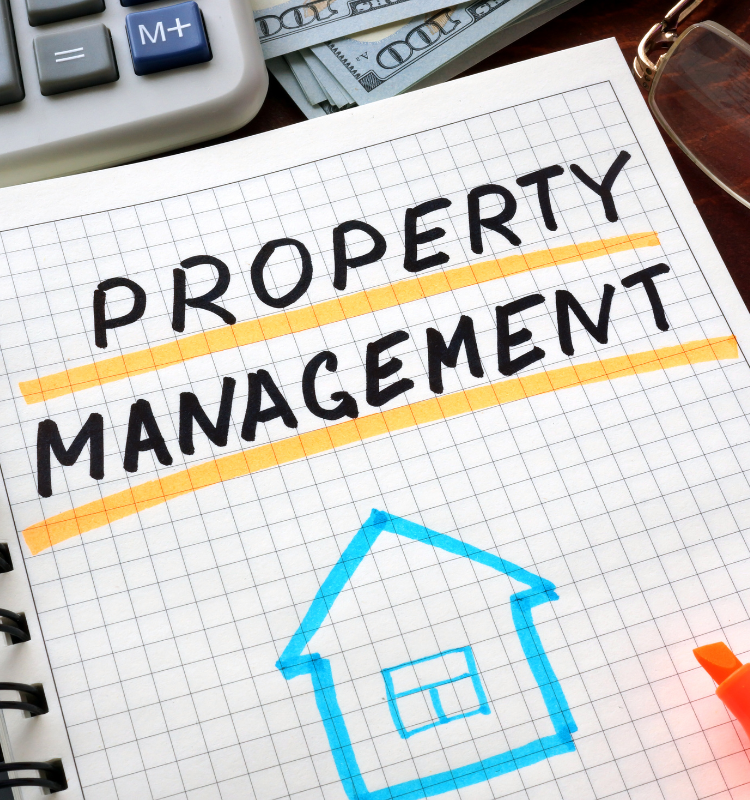
The Differences Between Property Management Accounting and Real Estate Accounting
- January 3, 2025
- OHI

Property management accounting and real estate accounting are two unique fields. They need specific knowledge and skills. It’s important to know the differences to report finances accurately and follow rules.
Property management accounting deals with the money side of renting out properties. This includes collecting rent, tracking expenses, and making budgets. Real estate accounting, though, covers more. It involves financial reports, tax planning, and analyzing investments.

For property management accounting, it’s key to report finances well. This helps make smart choices about property investments. Real estate accounting, though, needs a deep understanding of the market and complex data analysis. Knowing the differences helps navigate property management and investing.

Property management accounting is key in the real estate world. It needs a skilled real estate accountant. The main goal is to keep properties financially healthy. This is crucial for attracting and keeping tenants, and for making money for property owners.
A real estate accountant is vital in this field. They handle the financial side of properties, like budgeting and financial reports. They also make sure everything follows the law and accounting standards.
The main tasks include making financial statements, budgeting, and analyzing finances. A real estate accountant must create accurate and timely financial reports. These reports help property owners make smart investment choices.
The main people involved are property owners, tenants, and real estate accountants. Each group has a big interest in how properties perform financially. They must work together for effective and efficient property management.
The main financial statements are balance sheets, income statements, and cash flow statements. These statements give important insights into property finances. They help real estate accountants and owners make informed decisions.
In conclusion, property management accounting is complex and crucial in real estate. It needs a skilled real estate accountant. Knowing the basics helps accountants provide valuable services to owners. This helps them reach their investment goals.
| Financial Statement | Purpose |
|---|---|
| Balance Sheet | To provide a snapshot of a property’s financial position at a specific point in time |
| Income Statement | To provide a summary of a property’s revenues and expenses over a specific period |
| Cash Flow Statement | To provide a summary of a property’s inflows and outflows of cash over a specific period |

Real estate accounting is key in the property world. It deals with managing money matters of real estate properties. It’s important to know the rules and standards for real estate deals, like buying and selling.
Every real estate deal has its own accounting rules. For example, depreciation and amortization are big in real estate accounting. Depreciation is when the value of things like buildings goes down. Amortization is when the value of things like leases goes down too.
These parts help make sure real estate deals are recorded right. They also help manage properties well.
Knowing real estate accounting basics helps property owners and managers. They can make smart choices about their investments. They also make sure they follow the law.
| Real Estate Transaction | Accounting Treatment |
|---|---|
| Sales | Recorded as revenue |
| Purchases | Recorded as expense |
Accurate transaction recording is key in both property management and real estate accounting. Property accounting deals with the financial side of rental properties. This includes managing rent, tracking expenses, and following tax laws. Real estate accounting, on the other hand, covers a wider range. It involves property development, investment, and sales.
In property management, transactions are recorded when cash is received or paid. But real estate accounting uses the accrual method. This means transactions are recorded when they happen, not when cash changes hands.
Property management deals with rent, security deposits, and maintenance costs. Real estate investment includes buying, selling, and financing properties. Knowing these differences is vital for accurate financial reports and following the law.
Rent income is recognized when received in property management. But in real estate, revenue from sales is recognized at the sale’s close. These timing differences are important for accurate financial reporting.
Property management and real estate accounting have unique needs for recording transactions. By understanding these differences, businesses and individuals can make informed decisions. They can also ensure their financial reports are accurate and comply with regulations.
| State | Key ESG Regulations | Compliance Challenges |
|---|---|---|
| California |
|
|
| New York |
|
|

Financial reporting is key in property management and real estate accounting. A property accountant must make sure all reports are right and follow the law. How often reports are needed depends on the property type and who needs them.
Important reports include balance sheets and income statements. These show how well the property is doing financially. The accountant must follow accounting rules to make these reports.
It’s very important to follow financial reporting rules. Breaking these rules can lead to big fines and harm the company’s reputation. So, it’s crucial to have skilled property accountants who know the rules well.
Property accountants also have to record all financial deals correctly. This means they must track all money coming in and going out. They also need to make sure all reports meet the law’s standards.
Working with good property accountants has many benefits:
In short, financial reports are very important in property management and real estate. Having skilled accountants helps make sure reports are done right. This can lead to better financial decisions and performance.
For real estate accounting, the right software and technology are key. A real estate accountant can greatly benefit from using specialized software. This software makes financial processes smoother and more accurate. Options include property management accounting software and real estate investment platforms.
These tools come with many features. They can automate transaction recording, generate financial statements, and connect with other business systems. Real estate professionals can then focus on important tasks and make better investment decisions.
Using technology in real estate accounting has many benefits. It improves accuracy and efficiency. It also enhances financial reporting and analysis, and helps meet regulatory requirements.
By choosing the right software and technology, real estate accountants can offer better services. They can also stay competitive in the accounting for real estate industry.
| Software Type | Features | Benefits |
|---|---|---|
| Property Management Accounting Software | Automated transaction recording, financial statement generation | Improved accuracy, efficiency, and compliance |
| Real Estate Investment Platforms | Investment tracking, performance analysis, and reporting | Enhanced decision-making, risk management, and returns |

Real estate accountants are key in making sure everything is in order with taxes and rules. They keep up with new tax laws and accounting rules. This helps them give accurate and trustworthy financial info.
For real estate, following tax laws and rules is vital to avoid trouble. Accountants need to know about taxes on different real estate deals, like buying, renting, or investing. They also need to know about accounting standards like GAAP and IFRS to make sure financial reports are right and consistent.
Some important things real estate accountants need to think about include:
They also need to think about the tax effects of things like 1031 exchanges and real estate investment trusts (REITs). They should help clients plan their taxes to lower their tax bill and increase their earnings.
Working with skilled real estate accountants helps property owners and investors follow all rules and laws. It also makes sure their financial reports are correct and dependable.
| Regulatory Requirement | Real Estate Accounting Consideration |
|---|---|
| Tax Laws | Compliance with IRS regulations and tax laws |
| Accounting Standards | GAAP and IFRS compliance |
| Financial Statement Preparation | Accurate and consistent financial statement preparation |
Managing cash flow is key for property and real estate investments. In property accounting, it’s about tracking income and expenses. This ensures there’s enough money to pay bills. Property management accounting helps spot ways to boost cash flow.
In property management accounting, managing cash flow means making a budget. It forecasts income and expenses. This helps find cash flow gaps and fix them. Strategies include rent escalation, expense reduction, and investing in cash-generating assets.
Real estate investment cash flow methods also involve budgeting and forecasting. But they aim to maximize returns, not just manage cash flow. By using property accounting and management, investors can make smart choices. They ensure their investments generate enough cash to meet their goals.

Property accountants are key to keeping properties and real estate investments financially healthy. They look at many things, like how much money will come in and go out. This includes planning for income, managing costs, and forecasting cash flow.
To get budgeting and forecasting right, property accountants use special methods. These include zero-based budgeting and rolling forecasts. These help find ways to save money and use resources better. Important things to think about include:
A property accountant must also think about what each property or investment needs. This includes market trends, what tenants want, and rules they must follow. By mixing these methods and knowing what each property needs, property accountants can make detailed and accurate budgets and forecasts.

Effective asset management and depreciation strategies are key for real estate accountants. They help track and depreciate assets accurately. This is crucial for the financial health of properties and investments.
A real estate accountant must think about several things when creating these strategies. They need to consider the asset type, its useful life, and the depreciation method. Common methods include straight-line and accelerated depreciation.
Tracking assets in property management means keeping an eye on their condition, value, and depreciation. This is vital for real estate accounting. It helps in making smart decisions about maintenance and upgrades.
Depreciation methods for real estate investments vary based on the investment type and tax laws. A real estate accountant must know these methods for accurate depreciation and tax reporting. Common methods include MACRS and the straight-line method.
Real estate professionals can improve their accounting by using effective asset management and depreciation strategies. This helps in making better investment decisions.
Real estate accountants are key players in the real estate world. They help property owners and investors with their finances. Their tasks include making financial reports, handling budgets, and following the law.
Real estate accounting needs a solid grasp of finance and industry rules. It’s not just about numbers; it’s about understanding the real estate world too. Real estate accountants must be good at talking and analyzing. They need to make sense of financial data and spot trends. This helps them give advice that can shape business choices.

Here are some important skills and qualifications for real estate accountants:
To stay relevant, real estate accountants must keep learning about new trends and laws. This way, they can offer top-notch services and help the real estate industry thrive.
Effective property accounting and property management accounting are key for property and real estate success. Following industry-specific best practices is essential. The National Association of Realtors and the American Institute of Certified Public Accountants offer guidelines and standards.
Property management standards include keeping accurate financial records and preparing timely financial statements. They also ensure compliance with regulatory requirements. These standards help property managers and owners make informed decisions.
Real estate investment guidelines help investors make informed decisions. They include conducting thorough market research and analyzing financial performance. By following these guidelines, investors can reduce risks and increase returns.
By following industry-specific best practices, property managers and real estate investors can ensure the financial health and success of their properties and investments. This includes staying updated with the latest standards and guidelines.
| Best Practice | Description |
|---|---|
| Regular Audits | Conduct regular audits to ensure accuracy and compliance |
| Financial Planning | Prepare comprehensive financial plans and budgets |
| Risk Management | Assess and manage risks associated with properties and investments |

Managing property and real estate accounting can be tough. A property accountant might struggle with data and following rules. The key is to find good solutions, like using technology and outsourcing.
Some big problems for property accountants include:
To solve these issues, many turn to technology. This includes accounting software and automated systems. These tools make managing data easier, help follow rules better and cut down on work for property accountants.
By tackling these challenges, property accountants can do their jobs well. This helps property management and real estate succeed.

Accountants are key in keeping property and real estate finances healthy and successful. They handle everything from recording transactions to following rules. This helps in making smart choices that boost profits and reduce risks.
Managing rental properties or real estate investments requires staying current. Real estate accountants need to keep up with tax changes, cash flow, and asset management. This ensures they give accurate and timely financial reports to those who need them.
In the ever-changing world of property and real estate accounting, working with experts is crucial. Real estate accountants can help improve your assets’ financial health. They can also help manage cash flow and make smart investment choices that fit your goals.
Contact us for a customized NO OBLIGATION proposal for outsourcing your accounting activities.







